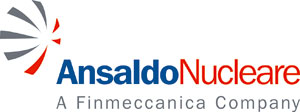

EDUCATION AND TRAINING
AT
ANSALDO NUCLEARE
Introduction
Attached is some background information on education and training programmes offered by Ansaldo Nucleare (ANN). We offer two kinds of programmes:
INTERNAL INDOCTION AND TRAINING
The main objective is to enhance the quality of every aspect of the company’s work, including the design, fabrication and installation of nuclear power plants and facilities. With this in mind, Ansaldo Nucleare considers the offer of vocational training and the systematic improvement of the staff’s competences to be of paramount importance. Ansaldo Nucleare regularly organises educational courses and training programmes that are tailored to meet the competences and needs of each individual, according to the specific roles and responsibilities that he or she has.
Training and induction courses are arranged in the following key areas:
-
The use of new software technologies and tools. These include the training of designers and specialists in the use of CAD/CAE systems aimed at implementing design optimisation processes. Also included are training courses for personnel involved in “interactive-system” design processes.
-
Tailor-made training courses focused on topics of special interest to the company.
-
Internal courses – supported by both internal and external teaching staff – dealing with specific subjects within the broader gamut of the company’s interests.
Each employee, based on her/his specific role and responsibility, is annually audited to assess the level of competence and experience acquired during the performing of his/her normal duties. His or her specific training and induction needs are then identified - when required - and forwarded to management for further implementation. Such an assessment is periodically made on the basis of the above-mentioned key issues, with special focus on:
-
elements identified as “improvement targets” according to the company’s Quality Management System (QMS) programmes
-
an analysis and critical review of those tasks that are susceptible to need further optimisation through the improvement of the quality of the products
-
liabilities and obligations in relation to applicable laws, regulations and standards
-
company policies
-
whenever personnel formation/induction is necessary in relation to changes that might impact upon the company’s QMS
-
any other specific need, as appropriate
Each employee has a Proficiency Maintenance Record, which is regularly kept up-to-date to assess whether specific induction/training is necessary in relation to the actual degree of competence and experience recorded.
MASTERS IN NUCLEAR SCIENCE AND TECHNOLOGY
At the end of 2009, Ansaldo Nucleare supported a Masters in Nuclear Science and Technology degree course organised by the University of Genoa. The scope of the Masters was to attract graduate engineers specialised in other areas to the nuclear field, with the aim of providing them with a basic knowledge of nuclear industrial applications. The Masters, offered by the engineering and physics faculties of Genoa University, involved also a number of organisations, including Ansaldo Energia, INFN (Istituto Nazionale di Fisica Nucleare), CIRTEN, Fondazione Ansaldo, Camera di Commercio di Genova and CNR (Centro Nazionale Ricerche), d’Apollonia. A selection processs was carried out in September 2009 (100 applications) and the Masters course started in November 2009. Seventeen graduates participated and are presently working as in-house trainees at Ansaldo Nucleare and d’Apollonia.
The Masters was provided with regional funding from the EU. The company actively participated by providing several professors to teach the course, as well as by organising seminars in parallel with the main sessions. The objective was to give to the students design and detailed technical information. The courses were organised as a basic course (common to all students) that was then followed by three different specialisation courses offered in the following main areas:
During the summer of 2010, a visit to Romania was organised and the students had the opportunity to visit the two units at Cernavoda NPP (CANDU), the fuel elements fabrication shop, the heavy water distillation plant and an experimental reactor located in Pitesti.
The student training courses provided by Ansaldo Nucleare and d’Apollonia were organised with dedicated tutorship within each company. The subject of the project work was chosen from a number of activities that each company is involved in. In other words, an “on-the-job” training scheme was chosen. This approach allowed smooth integration of the students within the specific units of the two companies, creating basis for future hiring or contract work.
A second edition of the Masters is planned to start in 2011. This second edition features the lessons learned from the first edition and will last for 12 months. The Masters programme has been selected by the University of Genoa as the basis for the development of a specialised course in nuclear engineering that is expected to start at the end of 2012. In this way, this initiative helped universities in Italy to develop a new direction for nuclear education in the country.
|

